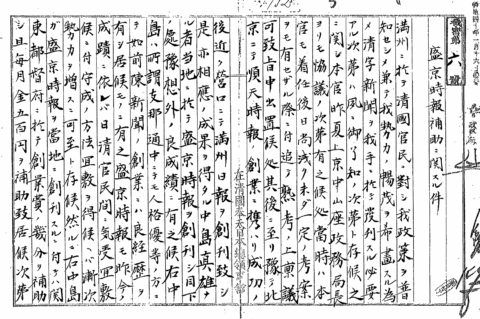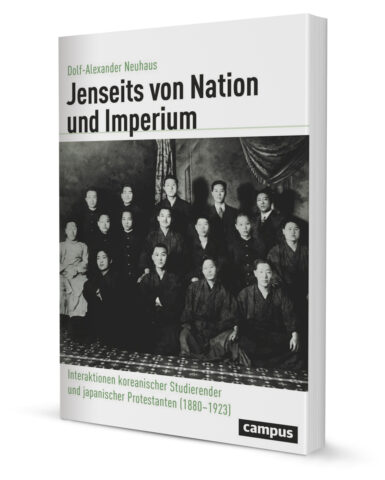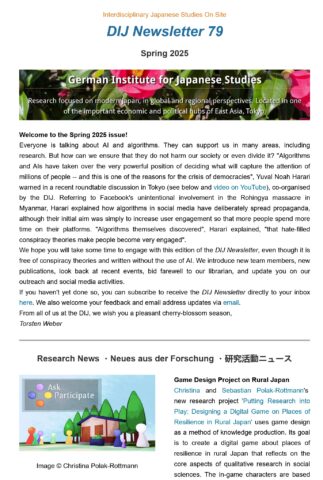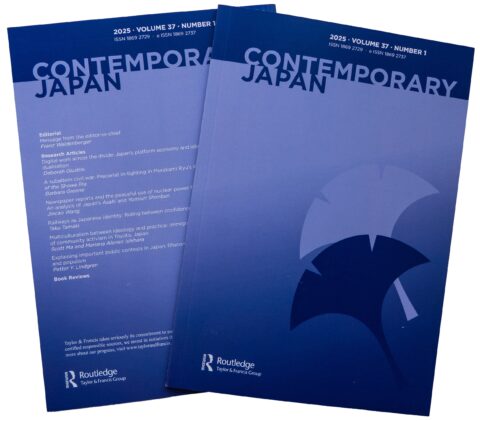Events and Activities
Hybrid DIJ Study Group on Japanese Private International Law

When evaluating cases involving legal relationships between private individuals with cross-border elements Japanese courts determine which jurisdiction’s law shall be applied to the legal relationship using a set of rules called “Private International Law”. Based on the “Savignian approach” to Private International Law, Japan strives to apply the law that it considers most closely connected to the specific legal relationship. In this context, the so-called Public Policy clause provides a crucial safeguard. If the application of foreign law results in a violation of “public policy and good morals,” this clause enables Japanese judges to exclude the foreign law from application. This presentation will analyze the doctrinal development and practical application of the Public Policy clause, illustrating under which circumstances and conditions Japanese courts invoke it. Details and registration here
Onsite Study Group on Imperial Press Policy in Northeast China

From the late Meiji era, the development of a China-based press network functional to the national interest became an integral part of Japan’s imperial agenda. After the defeat of Russia in the 1904-05 war, the Northeast, compared to other regions, offered to Japanese initiative more favorable conditions to achieve a dominant position in the media landscape. One of the most successful enterprises was the government-sponsored Shengjing Shibao, which became the largest newspaper in Fengtian (Shenyang). As a tool of foreign policy, however, press management suffered from the lack of unified decision-making among different agencies. This talk will present a case study to analyse Japanese imperial press policy as representative of the polycentric character of strategic planning in imperial Japan. Details and registration here
Book talk by Dolf Neuhaus on Japanese Colonial Rule in Korea

DIJ historian Dolf-Alexander Neuhaus will introduce his book Jenseits von Nation und Imperium. Interaktionen koreanischer Studierender und japanischer Protestanten (1880–1923) [Beyond nation and empire. Interactions between Korean students and Japanese Protestants, 1880-1923] at the next AREA Ruhr Book Talk on 25 June 2025, 10-11h CEST (in German). Drawing on a wide range of Japanese and Korean sources, the book examines how students and intellectuals discussed Japanese colonial rule in Korea and the ‘Korean question’ and how their exchange of ideas influenced Japanese and Korean perceptions of empire, nation, and East Asia. The book is published by Campus in the Global History series. Details and registration here
International Workshop on the Aging Challenge in Europe and Japan
 Economies in Europe and Asia are facing a “slow crisis” with a dual demographic shift: their population is expected to start contracting by 2050; the proportion of older adults is expected to surpass 30% by the same date. Japan is at the forefront of this change, having experienced already a decade of population decline while the share of the elderly is projected to reach 40%. Particularly challenging is the situation of the “oldest old” who are losing autonomy. The French-Japanese INNOVCARE consortium has introduced “care-led innovation” as a novel approach to reconcile social needs and technological dynamics. The one-day workshop Addressing the Aging Challenge in Europe and Japan – Insights from the INNOVCARE Project , organised by the European Institute of Sophia University, the EHESS, and the DIJ, brings together fifteen international scholars to discuss different perspectives on the aging challenge in Japan. The afternoon part of the workshop will be interpreted into Japanese and is open to the public. Details here
Economies in Europe and Asia are facing a “slow crisis” with a dual demographic shift: their population is expected to start contracting by 2050; the proportion of older adults is expected to surpass 30% by the same date. Japan is at the forefront of this change, having experienced already a decade of population decline while the share of the elderly is projected to reach 40%. Particularly challenging is the situation of the “oldest old” who are losing autonomy. The French-Japanese INNOVCARE consortium has introduced “care-led innovation” as a novel approach to reconcile social needs and technological dynamics. The one-day workshop Addressing the Aging Challenge in Europe and Japan – Insights from the INNOVCARE Project , organised by the European Institute of Sophia University, the EHESS, and the DIJ, brings together fifteen international scholars to discuss different perspectives on the aging challenge in Japan. The afternoon part of the workshop will be interpreted into Japanese and is open to the public. Details here
Online Study Group on Mediation of Deaf and Hearing Sign Language Interpreters in Japan

Sign language interpreting plays a crucial role in ensuring effective communication between Deaf and hearing individuals, particularly in highly specialized settings such as court hearings and psychotherapy sessions. However, interpreting in these fields presents unique challenges, as it requires not only linguistic skills but also the ability to navigate cultural nuances, emotional contexts, and diverse communication needs. This research project examines the practices of Deaf and hearing sign language interpreters in Japan, focusing on how they handle demands, interpret nuances, and adapt their interpreting strategies to individual Deaf sign language users. Key areas of investigation include the strategies employed by interpreters in the courtroom, psychotherapy sessions, conferences, and media, and how these strategies vary according to context and audience, as well as their adaptation to the linguistically and culturally diverse needs of Deaf sign language users. This presentation will outline the research project and offer a critical overview of the research methodology employed in the study. Details and registration here
DIJ researchers co-organise symposium ‘Loneliness as a Social Phenomenon’
 DIJ researchers Carolin Fleischer-Heininger and Celia Spoden will present their research related to loneliness and social isolation at the international symposium Loneliness as a Social Phenomenon: Cross-Cultural Approaches to a Human Condition. The symposium examines loneliness as a social phenomenon that has increased as a result of social transformations and structural changes. It brings together an interdisciplinary group of scholars and practitioners to explore loneliness and social isolation. To investigate both conditions, it takes a holistic and cross-cultural approach, and explores themes that connect theoretical understandings with practical application. Participants will share their expertise on the ambivalent role of digital technologies; civil-society measures to foster social inclusion; literary representations of loneliness; and the ethical implications of social fragmentation. In addition to academic presentations, the symposium includes an ethnographic film screening, a workshop, and a field trip to a local project addressing loneliness. The symposium takes place in Hanover from June 11 to 13 and is part of the theme week “(Tackling) Loneliness”, sponsored by the Volkswagen Foundation. Details here
DIJ researchers Carolin Fleischer-Heininger and Celia Spoden will present their research related to loneliness and social isolation at the international symposium Loneliness as a Social Phenomenon: Cross-Cultural Approaches to a Human Condition. The symposium examines loneliness as a social phenomenon that has increased as a result of social transformations and structural changes. It brings together an interdisciplinary group of scholars and practitioners to explore loneliness and social isolation. To investigate both conditions, it takes a holistic and cross-cultural approach, and explores themes that connect theoretical understandings with practical application. Participants will share their expertise on the ambivalent role of digital technologies; civil-society measures to foster social inclusion; literary representations of loneliness; and the ethical implications of social fragmentation. In addition to academic presentations, the symposium includes an ethnographic film screening, a workshop, and a field trip to a local project addressing loneliness. The symposium takes place in Hanover from June 11 to 13 and is part of the theme week “(Tackling) Loneliness”, sponsored by the Volkswagen Foundation. Details here
DIJ Newsletter Spring 2025

The spring issue of our DIJ Newsletter features updates on our research, publications, and events as well as news from the Institute, our team, and our outreach activities. We hope you will enjoy exploring this new edition of the DIJ Newsletter. If you haven’t done so yet, you can subscribe to receive our Newsletters directly to your inbox. The full issues and subscription form are available here.
New issue of Contemporary Japan published
 The new issue of Contemporary Japan includes research articles on new forms of labor market dualization in the platform economy (Deborah Giustini), an analysis of Murakami Ryu’s Popular Hits of the Showa Era from the perspective of precarity (Barbara Greene), a discussion of media discourses of the peaceful use of nuclear power in the early postwar period (Jincao Wang), an analysis of Japanese identity construction through railway technology (Taku Tamaki), narratives of multiculturalism and community-building among Nikkei in the city of Toyota (Scott Ma and Mariana Alonso Ishihara), and an assessment of political rhetoric, public contest outcomes, and populism in 21st century Japanese politics (Petter Lindgren). The book review section covers publications on Jesuit enterprise in Japan in the sixteenth and seventeenth centuries, on the impact of the bombings of Hiroshima and Nagasaki on psychological science, on East-West encounters in Japanese art, and on the history of the Japanese business community in Düsseldorf.
The new issue of Contemporary Japan includes research articles on new forms of labor market dualization in the platform economy (Deborah Giustini), an analysis of Murakami Ryu’s Popular Hits of the Showa Era from the perspective of precarity (Barbara Greene), a discussion of media discourses of the peaceful use of nuclear power in the early postwar period (Jincao Wang), an analysis of Japanese identity construction through railway technology (Taku Tamaki), narratives of multiculturalism and community-building among Nikkei in the city of Toyota (Scott Ma and Mariana Alonso Ishihara), and an assessment of political rhetoric, public contest outcomes, and populism in 21st century Japanese politics (Petter Lindgren). The book review section covers publications on Jesuit enterprise in Japan in the sixteenth and seventeenth centuries, on the impact of the bombings of Hiroshima and Nagasaki on psychological science, on East-West encounters in Japanese art, and on the history of the Japanese business community in Düsseldorf.





 Open Access
Open Access
